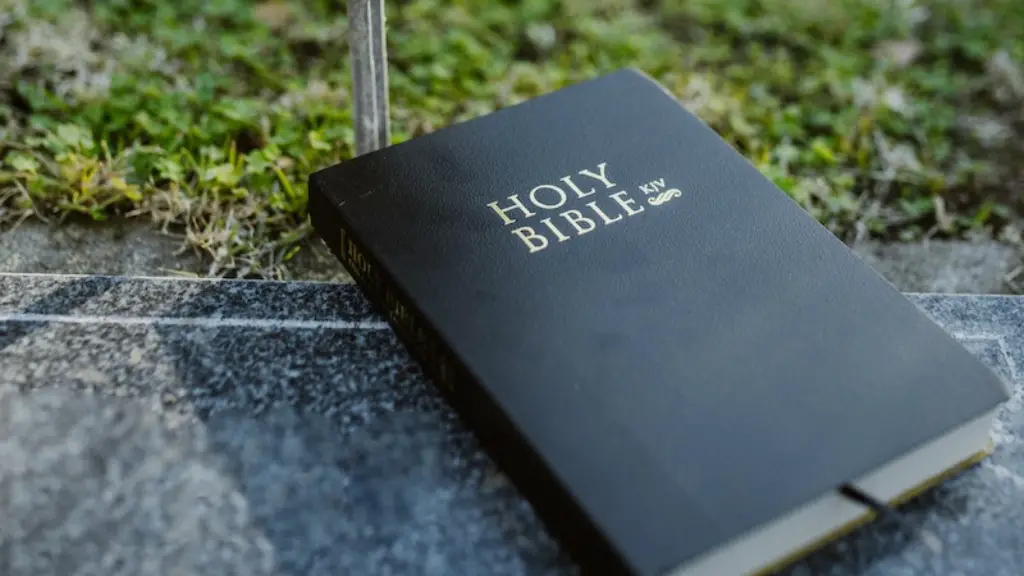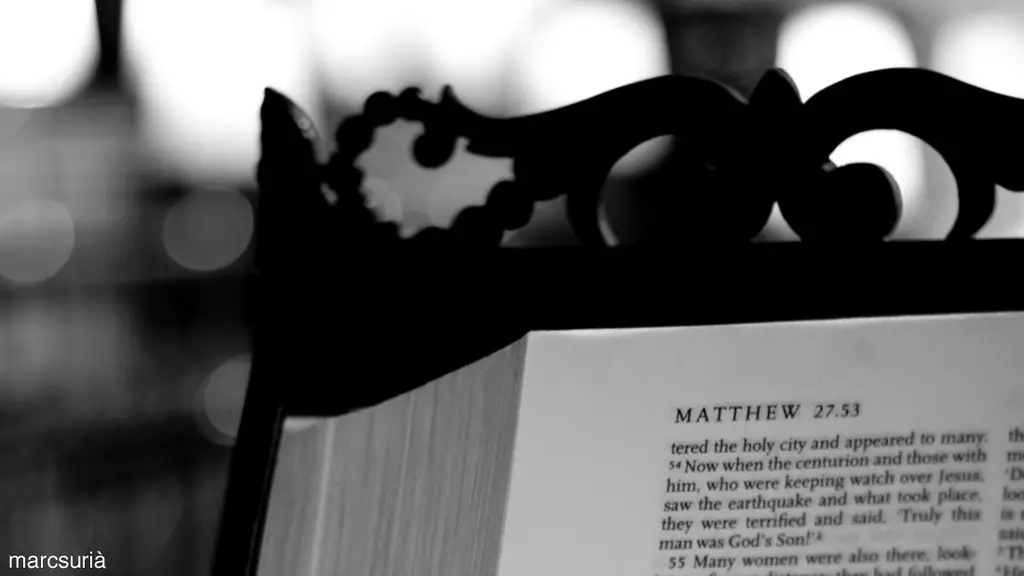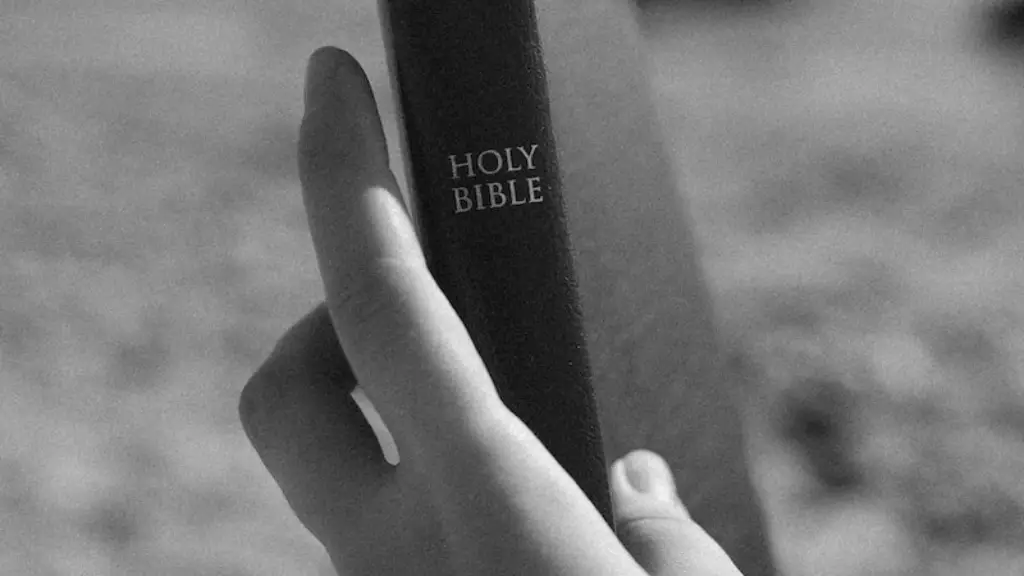Eunuchs are people who are either born without or have had their sexual organs removed. They often serve as servants and courtiers in dynasties or royal families. Most people associate eunuchs with the Bible, especially because some passages in the Bible refer to eunuchs.
In the Bible, a eunuch is a man who either cannot father children in the natural way because he was born without sexual organs, has had them removed by force, or has had them reduced in size as part of a ritual. For example, Matthew 19:12 says “For there are eunuchs who were born that way, and there are eunuchs who have been made eunuchs by others—and there are those who choose to live like eunuchs for the sake of the kingdom of heaven. The one who can accept this should accept it.”
The role of a eunuch in the Bible is to serve as a courtier, providing the ruler of the court with advice and help with daily tasks. In the Bible, there are many stories about eunuchs, such as the Ethiopian eunuch who served the queen of Ethiopia in the book of Acts (Acts 8:27). Eunuchs were also a prominent feature in Old Testament stories, such as the story of Daniel in the lion’s den.
Today, the role of eunuchs in the Bible is undergoing a revamp in popular understanding. Early eunuchs were commonly viewed as asexual or gender-nonconforming people, and some Christian theologians today argue that eunuchs can find a place in a contemporary Christian understanding of gender. Many Christian scholars argue that the Bible actually affirms the identity of eunuchs and celebrates their inclusion in the church. This view is gaining traction in modern Christian circles, where more and more people are embracing the idea of a gender-affirming theology.
In addition to gender inclusivity, eunuchs in Scripture also provide valuable lessons in attitudes towards the marginalized. The Bible speaks repeatedly of God’s preferential treatment of the disenfranchised, and eunuchs provide a powerful illustration of this concept. It is not just their inclusion in courtly life, but also the fact that sometimes they are underestimated and neglected by their rulers that turns out to be a blessing in disguise. The Bible says, “He who does not know how to rule his own house, how will he take care of the church of God” (1Timothy 3:5).
Overall, eunuchs in the Bible provide a powerful reminder of God’s love for those on the margins. They are an example of a group of people who were seen as lesser than, yet still worthy of love and inclusion in the Church. As Christians, we should strive to mirror this acceptance and embrace of diversity, both in the Church and in our wider society.
Theological Considerations of Eunuchs
The Bible has much to say about eunuchs, stressing both their spiritual and physical diversity. Most theologians agree that the term “eunuch” as used in the Bible includes not only individuals born without the capacity to reproduce, but also those who have undergone some form of genital mutilation, and those who (either male or female) voluntarily choose to not engage in sexual activity.
For thousands of years, eunuchs have held a respected place in many societies, especially in the ancient world, where they were adopted as servants of kings and rulers. In ancient Israel, eunuchs were banned from the assembly of the Lord and from being part of the priesthood. Despite this, eunuchs often rose to high positions of power due to their loyalty and dependability.
All of this is reflected in various passages of the Bible, most notably in the writings of Isaiah. In Isaiah 56:3-5, God declares that eunuchs have a place in his kingdom and will not be excluded from worship and serving in the House of the Lord. This passage demonstrates how God values inclusion and works to overturn traditional prejudices as it opens the door to a more inclusive future.
Theological considerations of eunuchs calls Christians today to ask hard questions of themselves and their biblical interpretation. How do we, as Christians, view and embrace those who are on the margins in our society? How can we extend grace, love and understanding to all regardless of their different gender identities? How can we acknowledge, embrace and celebrate the diversity that is intrinsic to the human experience?
Historical Context of Eunuchs in the Bible
Though the specifics vary from culture to culture, the role of eunuchs in the Biblical world was generally to serve as emissaries and court officials who were trusted by their rulers. Eunuchs became part of the royal court in Babylon and Persia, playing important roles in both governments. Eunuchs were also highly valued in Egypt, where they were used by Pharaohs as administrators, ministers and even military commanders.
The Bible records several specific instances in which a eunuch is mentioned alongside a ruler. For example, in 2 Kings 9:32-33 it is recorded that Jehu was accompanied by a eunuch when he entered the palace of King Joram in Israel. In the book of Esther, a eunuch named Haman is mentioned as a high-ranking court official who actively sought to oppose the Jewish people.
Eunuchs have a long, rich history in the Bible, though today the term is primarily associated with gender non-conforming persons. This is likely because of the absence of gender neutral language used in ancient times. As Christians, we should strive to use inclusive language when speaking of eunuchs in the Bible and seek to embrace the diversity of gender identities represented in both the ancient and modern world.
Centuries of Misrepresentations of Eunuchs
Eunuchs have often been the victims of mischaracterization in literature and films. Misrepresentations of eunuchs are more commonplace in Western literature, perpetuating the idea that they are strange or “other”. More recently, eunuchs have become a tool used to further oppress and subjugate women, especially in patriarchal societies. This can be seen in the use of eunuchs to guard harems and protect women from any potential advances from men.
In the Bible itself, eunuchs have often been dismissed or disregarded. There is no comprehensive biblical narrative devoted to the role of eunuchs, and they are frequently referenced in the Bible only in passing. This contributes to a perception of eunuchs as characters who are only there as a plot device or “other” for comic relief.
In addition, some eunuchs in the Bible are portrayed harshly, such as the Ethiopian eunuch who was denied entry into a Jerusalem synagogue in the book of Acts (Acts 8:27). This negative portrayal perpetuates the notion that eunuchs are to be viewed with suspicion, and serves to alienate them and disempower them.
Ultimately, these misrepresentations of eunuchs in the Bible add to negative connotations and impede our understanding of their place in the Biblical narrative. Rather than viewing eunuchs as mysterious and “other,” Christians should seek to appreciate and affirm their identity, as they have a rich and significant role in God’s kingdom.
Implications for Christian Practice
The Bible’s inclusion of eunuchs has led to much debate and discussion in contemporary Christianity. For many, eunuchs represent a challenge to established social norms, and even to one’s own preconceived ideas about gender and sexuality. As a result, a Christian’s interpretation of the Bible and its implications for faith and practice must take into account the presence and role of eunuchs.
In terms of Christian practice, the Bible’s message about eunuchs is a call for inclusivity and acceptance. Eunuchs are not to be excluded or disregarded, but rather embraced and welcomed into the church and given equal access to the means of grace. As Christians, we should strive to understand and affirm the role that eunuchs can play in the life of the Church, and to recognize their value and importance.
Finally, it is important to remember that the Bible calls us to be agents of transformation in the world. As we seek to follow the example of Christ, we should strive to embody the love, mercy and grace that God shows to all, regardless of gender identity. In doing so, we can provide a model for other Christians on how to minister compassionately to those on the margins, and how to truly seek justice for all.
Changing Attitudes Towards Eunuchs in the Church
In recent years, the Church has slowly begun to recognize and affirm the role of eunuchs in the Bible. For example, some denominations have started to embrace gender-inclusive language when discussing eunuchs in their churches and are taking steps to create spaces of openness, love and acceptance for individuals of all gender identities. Likewise, there has been a general move away from gender stereotypes that have often been used to reinforce discrimination against eunuchs.
In addition, many Christians today are engaging in conversations about the gender-expansive nature of the Bible and its implications for Christian practice. This is a crucial step in understanding the role of eunuchs in the Bible and carrying God’s message of love and inclusion forward. After all, it is only through an understanding of the role of eunuchs in the Bible that Christians can begin to understand the wider implications of this biblical narrative for our own lives.
Ultimately, the Bible’s stance on eunuchs is clear—they are to be included in the church and offered equal access to the means of grace. The Church can take this message to heart and strive to create an inclusive space that embraces and celebrates diversity. This can be done through open conversations, education and advocacy, and through the active work to break down barriers that have excluded the vulnerable and marginalized in our society.
The Impact and Legacy of Eunuchs in the Bible
Today, eunuchs are still too often overlooked or excluded from conversations, but their important role in the Bible is undeniable. In the Bible, eunuchs are not only portrayed positively but also given a voice, a role and a place in the story. This is a powerful reminder of the importance of inclusion and respect for those who are different.
Furthermore, the example of eunuchs in the Bible has impacted and changed the way in which the Church views the issue of gender. As the conversation about gender and diversity evolves in the Church, we should remember the lessons of inclusion and respect found in the Bible, and strive to embody these values in our actions towards others.
The Bible’s inclusion of eunuchs is an important reminder that God calls us to cleave to the outsider, offer hospitality to the vulnerable, and to strive for a world where everyone is welcomed and celebrated. As Christians, we should always seek to uphold these values and create a space of inclusivity and love for all.





